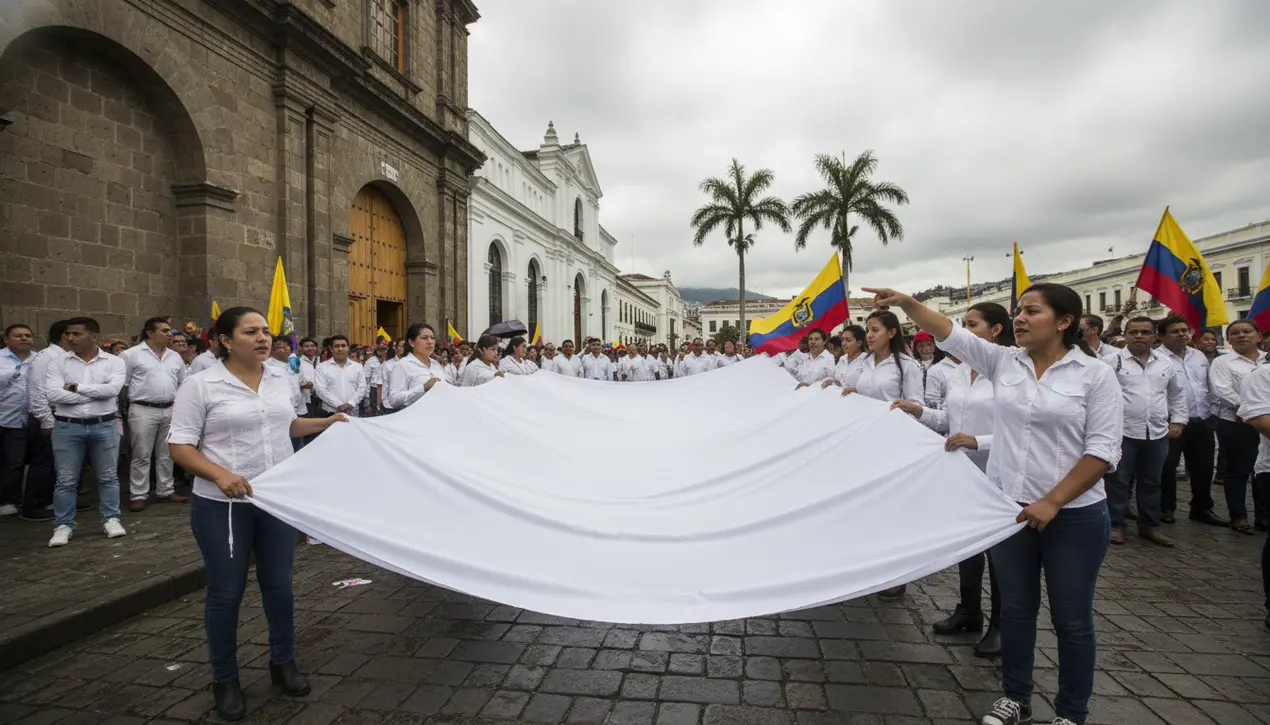
PoliticslegislationConstitutional Amendments
Ecuador Rejects Foreign Military Bases and Constitutional Rewrite.
RO
Robert Hayes
2 hours ago7 min read1 comments
In a decisive move that underscores the complex geopolitical currents shaping Latin America, Ecuador has firmly rejected proposals for the establishment of foreign military bases and the initiation of a constitutional rewrite, a significant political setback for conservative President Daniel Noboa. Noboa, whose administration has been closely aligned with the Trump-era foreign policy apparatus in the United States, had actively petitioned the nation's courts to include a pivotal question on a potential referendum—a question that would have opened the door to a comprehensive constitutional process, a tool often wielded by leaders to consolidate power and reset the political landscape.This rejection is not merely a domestic policy dispute; it is a profound statement of national sovereignty that echoes historical precedents across the region, where the presence of foreign military assets has long been a contentious issue, often viewed through the lens of post-colonial resistance and the Monroe Doctrine's lingering shadow. The Ecuadorian constitution, a document born from the 2008 Citizens' Revolution under former President Rafael Correa, enshrines principles of national self-determination and the rights of nature, making any attempt to overhaul it a deeply ideological battle.For President Noboa, who inherited a nation grappling with unprecedented violence and institutional fragility, the proposed constitutional changes were likely envisioned as a mechanism to grant him broader executive powers to confront these crises, much like the states of emergency he has frequently declared. However, the courts' resistance reveals the enduring strength of Ecuador's democratic institutions and a palpable public wariness of granting any single leader a blank check to redraw the foundational social contract.This development carries significant implications for regional power dynamics, particularly concerning the United States' strategic interests. A foreign military base, likely American, would have represented a substantial shift in the regional security architecture, potentially altering the balance of power in the Pacific and Amazonian territories and drawing comparisons to the long-standing U.S. presence in Colombia.The rejection signals a cautious approach to superpower alignment, a sentiment increasingly common in South American capitals seeking a more non-aligned foreign policy. Analysts will be watching closely to see if this judicial and political rebuff weakens Noboa's standing, potentially emboldening an opposition that spans from the indigenous CONAIE movement to traditional political elites who view his agenda with suspicion. The episode serves as a stark reminder that even in an era of escalating security threats, the foundational pillars of sovereignty and constitutional integrity remain potent political forces, capable of checking executive ambition and defining a nation's path forward on its own terms.
#Ecuador
#referendum
#foreign military bases
#constitution
#Daniel Noboa
#featured
Stay Informed. Act Smarter.
Get weekly highlights, major headlines, and expert insights — then put your knowledge to work in our live prediction markets.
Related News
Comments
Loading comments...
© 2025 Outpoll Service LTD. All rights reserved.